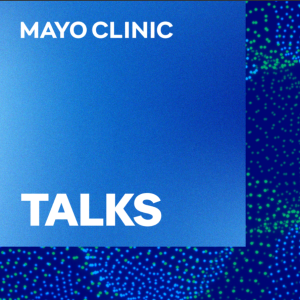
The Nonlinear Library: EA Forum
Education

Welcome to The Nonlinear Library, where we use Text-to-Speech software to convert the best writing from the Rationalist and EA communities into audio. This is: How people stopped dying from diarrhea so much (& other life-saving decisions), published by Writer on March 16, 2024 on The Effective Altruism Forum.Rational Animations made this video collaborating with 80,000 Hours. The script has been written by Benjamin Hilton as an adaptation of part of the 80,000 Hours career guide, by Benjamin Todd. I have included the full script below.It's easy to feel like one person can't make a difference.The problems the world faces seem so vast, and we seem so small. Sometimes even the best of intentions aren't enough to make the world budge.Now, it's true that many common ways people try to do good have less impact than you might think at first.But some ways of doing good have allowed certain people to achieve an extraordinary impact. How is this possible? And what does it mean for how you can make a difference?We'll start by looking at doctors - and end up at nuclear war.Many people train to become doctors because they want to save lives! And, of course, their work is very important. But how many lives does a doctor really save over the course of their career? You might assume it's in the hundreds or thousands. But the surprising truth is that, according to an analysis carried by Dr Greg Lewis - a former medical doctor - the number is far lower than you'd expect.Since the 19th century, life expectancy has skyrocketed. But that's not just because of medicine. There are loads of contributing factors, like nutrition, improved sanitation, and increased wealth. Estimating how many years of life medicine alone saves is really difficult.Despite this difficulty, one attempt - from researchers at Harvard and King's College London - found that medical care in developed countries increases the life expectancy of each person in these countries by around 5 years.Most developed countries have around 3 doctors per 1,000 people. So, if this estimate is right, each doctor saves around 1,666 years of life, over the course of their career. Using the World Bank's standard conversion rate of 30 extra years of healthy life to one "life saved," that's around about 50 lives saved per doctor!But that's actually a substantial overestimate.Doctors are only one part of the medical system, which also relies on nurses and hospital staff, as well as overhead and equipment. And more importantly, there are already a lot of doctors in the developed world. So if you don't become a doctor, someone else will be available to perform the most critical procedures. Additional doctors only allow society to carry out additional, usually less significant, procedures.Look at this graph, from the analysis by Dr. Greg Lewis we quoted earlier. Each point is a country - The vertical axis shows disability-adjusted-life-years per 100-thousand people. You can think of that figure as roughly how many years of disability a group of 100-thousand people has to endure on average. Therefore, the fewer, the better. Each country has a different figure. The horizontal axis shows the number of doctors per 100-thousand people in each country.As you can see, countries with more doctors suffer lower disability.But notice how the curve goes nearly flat once you have more than 150 doctors per 100-thousand people. After this point (which almost all developed countries meet), additional doctors only achieve a small impact on average. In fact, at 300 doctors per 100-thousand people, an additional doctor saves only around 200 years of life throughout their career.So, when you take all this into account, including some accounting for the impact of nurses and other parts of the medical system, it looks more like each doctor saves only around 3 lives through the course of their career. Still an admirable achievement, but perhaps less than you may imagine.But that's an ordinary doctor. Some...
More Episodes
EA - How to Resist the Fading Qualia Argument (Andreas Mogensen) by Global Priorities Institute
 2024-03-26
2024-03-26
EA - Timelines to Transformative AI: an investigation by Zershaaneh Qureshi
 2024-03-26
2024-03-26
EA - Effective Giving Projects That Have (and Haven't) Been Tried Among Christians by JDBauman
 2024-03-26
2024-03-26
EA - How Educational Courses Help Build Fields: Lessons from AI Safety Fundamentals by Jamie B
 2024-03-25
2024-03-25
EA - Research report: meta-analysis on sexual violence prevention programs by Seth Ariel Green
 2024-03-25
2024-03-25
EA - Announcement on the future of Wytham Abbey by Rob Gledhill
 2024-03-25
2024-03-25
EA - Killing the moths by Bella
 2024-03-25
2024-03-25
EA - EA Sweden's Impact 2023, Plans for 2024, and Current Funding Gap by Emil Wasteson
 2024-03-25
2024-03-25
EA - Long Reflection Reading List by Will Aldred
 2024-03-25
2024-03-25
EA - Friendship as a sacred value by Michelle Hutchinson
 2024-03-24
2024-03-24
EA - What we fund, #1: We fund many opportunities outside our top charities by GiveWell
 2024-03-23
2024-03-23
EA - Posts from 2023 you thought were valuable (and underrated) by Lizka
 2024-03-22
2024-03-22
EA - Slim overview of work one could do to make AI go better (and a grab-bag of other career considerations) by Chi
 2024-03-22
2024-03-22
EA - Videos on the world's most pressing problems, by 80,000 Hours by Bella
 2024-03-21
2024-03-21
EA - Can the AI afford to wait? by Ben Millwood
 2024-03-21
2024-03-21
EA - Nigeria pilot report: Reducing child mortality from diarrhoea with ORS & zinc, Clear Solutions by Martyn J
 2024-03-21
2024-03-21
EA - EA Philippines Needs Your Help! by zianbee
 2024-03-21
2024-03-21
EA - Updates on Community Health Survey Results by David Moss
 2024-03-20
2024-03-20
EA - Effective language-learning for effective altruists by taoburga
 2024-03-20
2024-03-20
EA - The current limiting factor for new charities by Joey
 2024-03-19
2024-03-19
Create your
podcast in
minutes
- Full-featured podcast site
- Unlimited storage and bandwidth
- Comprehensive podcast stats
- Distribute to Apple Podcasts, Spotify, and more
- Make money with your podcast
It is Free
You may also like

Mayo Clinic Talks


The Saad Truth with Dr. Saad


Positive Thinking Mind


The Jordan B. Peterson Podcast


The Mel Robbins Podcast


- Privacy Policy
- Cookie Policy
- Terms of Use
- Consent Preferences
- Copyright © 2015-2024 Podbean.com


 iOS
iOS Android
Android